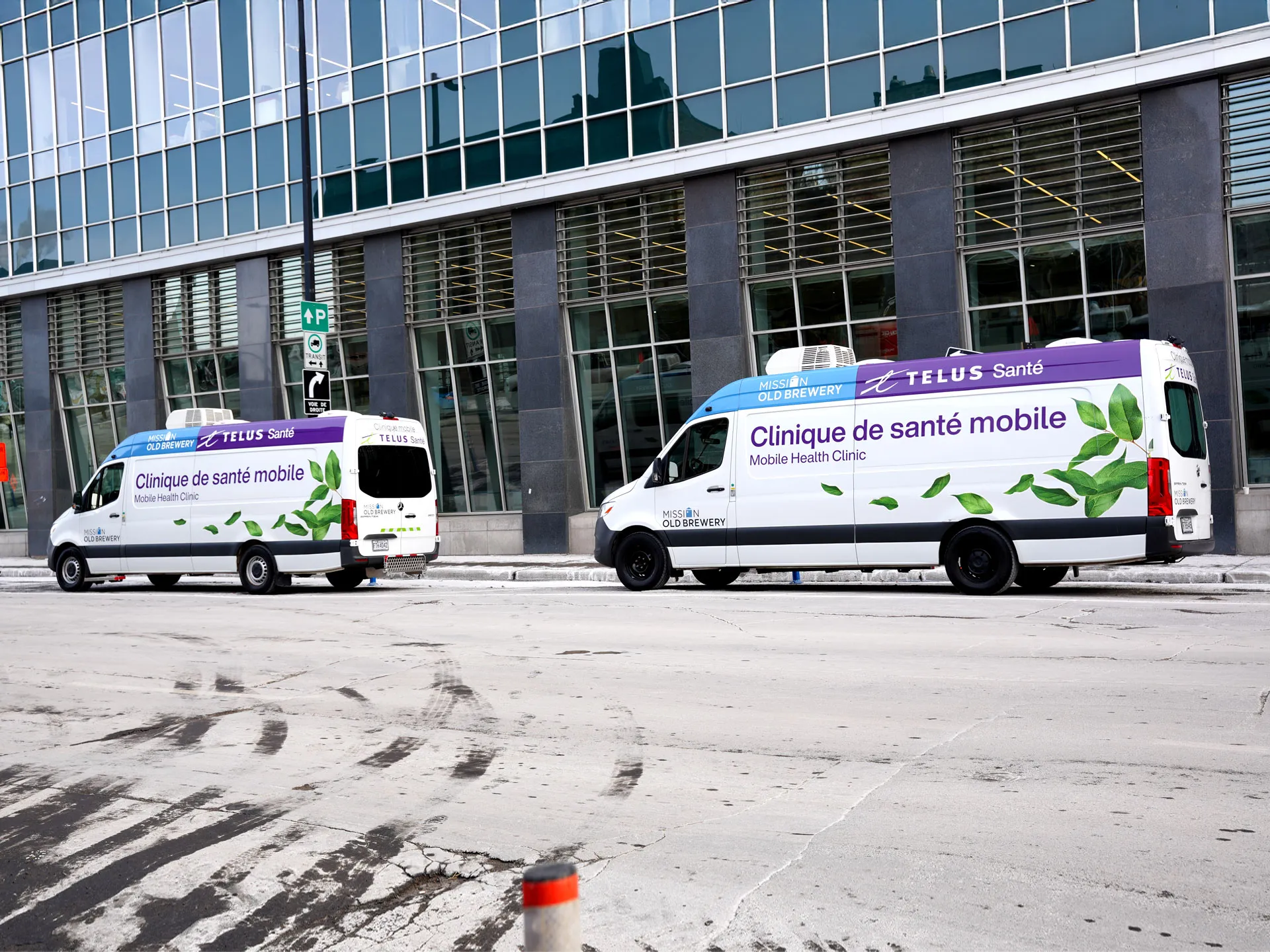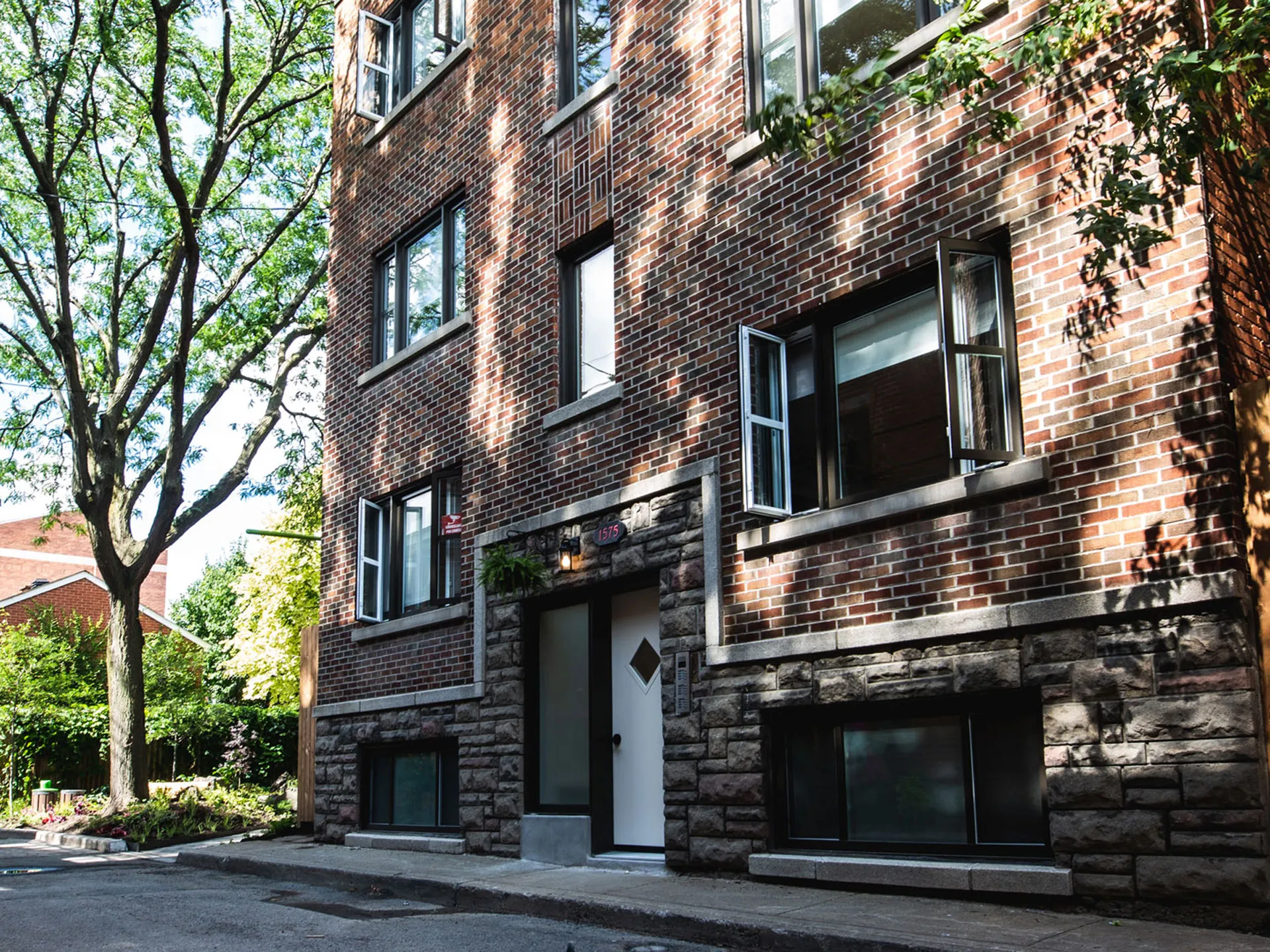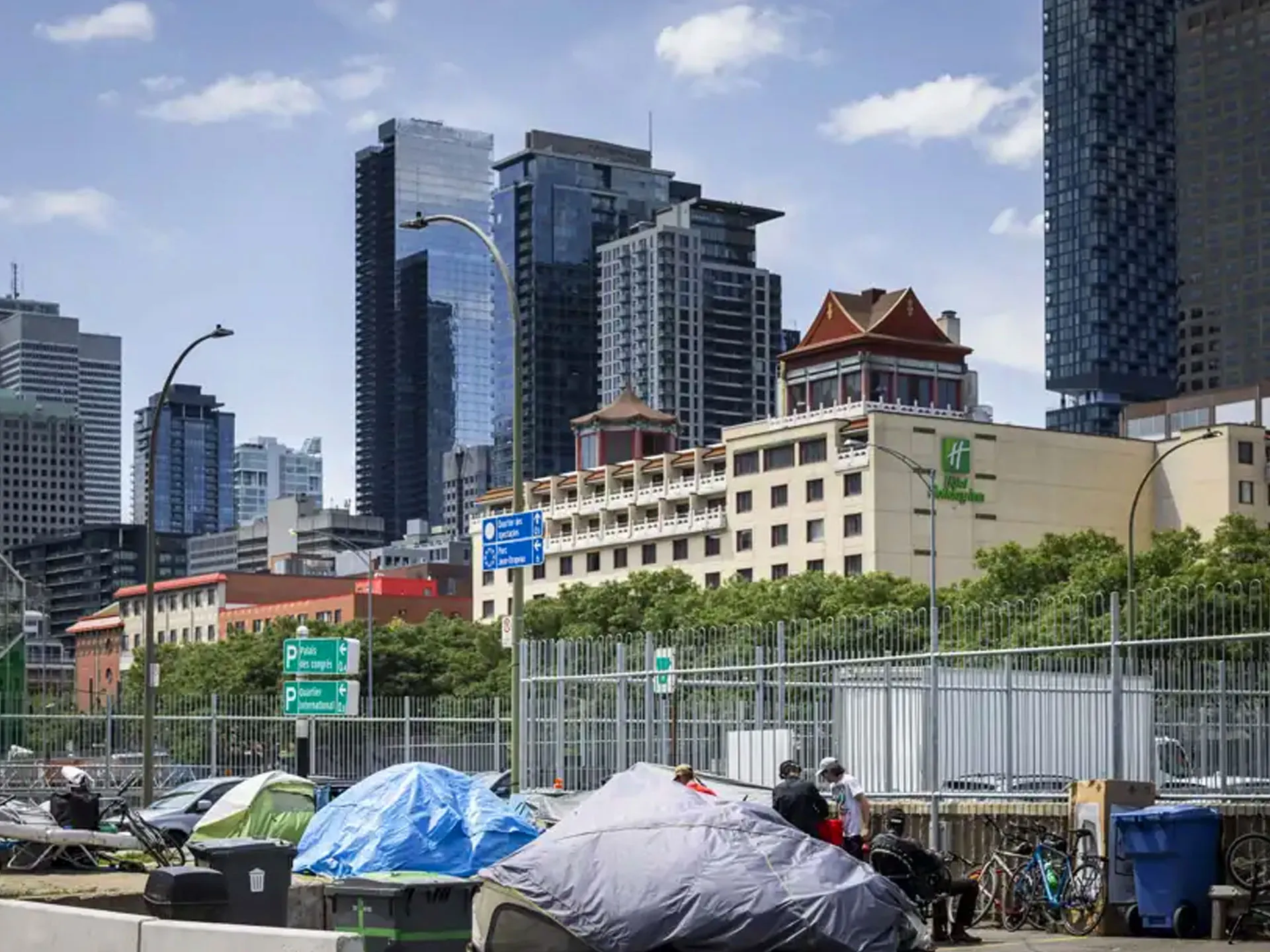
Social and community housing can prevent homelessness

Voisines de Lartigue is a rehousing project for women.
James Hughes, President and CEO of the Old Brewery Mission, signs an opinion piece in Le Devoir on the importance of social and community housing, as Montreal's population of people experiencing homelessness has grown to 5,000 in recent years.
The news about homelessness in Montreal is grim. Since 2018, the number of people experiencing homelessness in the city has increased by 2,000, from 3,000 to 5,000. The pandemic has had a very real impact. The Old Brewery Mission’s emergency services are also seeing a sharp increase in drug overdoses and are administering naloxone on an almost daily basis. What’s more, unsheltered homelessness (people sleeping in parks or doorways or on the street) is on the rise.
This is largely due to the housing crisis. Between 2016 and 2021, Quebec lost 115,000 units priced at $750 a month or less, including 89,000 in Montreal. The vacancy rate for affordable units hovers around 1%. Rents for rooms and modest studio apartments have risen 8% just since last year.
The pressure on the rental market has led to a wave of evictions and, consequently, homelessness. According to the latest count, 22% of people newly experiencing homelessness had been evicted from their apartments. People staying in our emergency shelters or living on the street have fewer options for the same reason they lost their homes in the first place: the housing crisis.
But while these facts may seem discouraging, there is reason for optimism. Here’s why:
-
The federal government has just announced Canada’s most ambitious housing plan since the 1970s. The target is to build almost four million new housing units over the next decade, dramatically increasing the supply of affordable units across the land. Protecting the existing stock of affordable housing is also a key element of the plan. The new Canada Rental Protection Fund will provide $1.5 billion in contributions and loans to help affordable housing providers to acquire units and preserve rents at stable levels for decades to come, preventing those units from being redeveloped into out of reach condos or luxury rental units, Finance Minister Chrystia Freeland announced when she tabled the federal budget in April.
-
The Quebec government has just tabled a bill to prohibit evictions for three years, or until the vacancy rate is above 3%. Evictions will not be allowed for a change of use, subdivision or enlargement of a dwelling. The bill will also better protect seniors by prohibiting the eviction of low-income people aged 65 and over (compared with the current threshold of 70) and raising the income cut-off. This is excellent news for vulnerable households.
-
The Quebec government has responded to criticism of the Quebec Affordable Housing Program, known by its French acronym PHAQ, by making it more flexible and better suited to the current rental market. The Old Brewery Mission recently received a large subsidy from the PHAQ to purchase a 46-unit rooming house on the Plateau Mont-Royal. This acquisition will ensure the long-term affordability of the units, allow us to provide tenants with the support services they need, and significantly reduce the risk of homelessness.
-
In addition, two years ago, the City of Montreal passed a bylaw giving it the right of first refusal. The city now has first dibs on land and buildings before any other buyer, allowing it to carry out projects that benefit the community. More than 100 rooming houses have been made subject to the bylaw since it came into force. The owners of these rooming houses must therefore notify the city if they intend to sell their buildings before accepting any offer. Montreal was the first municipality in Quebec to set up a system of this kind. The Old Brewery Mission manages two of the buildings the city has acquired under this bylaw, enabling us to put our expertise to work for their residents.
-
The City of Montreal has also established a multi-sectoral task force on the sensitive issue of unsheltered people living in public spaces. The work of the task force could lead the city and its partners to adopt structured, proactive measures and services to tackle homelessness.
The non-profits working to address homelessness are all expanding in order to do more and do better. We are striving to reverse the sharp rise in the number of people experiencing or at risk of homelessness in our city. All three levels of government seem to be on board more than ever before. And this is just the beginning.
Dernières nouvelles
-
 The Old Brewery Mission and TELUS Health for Good launch second mobile
The Old Brewery Mission and TELUS Health for Good launch second mobile -
 Homelessness in the downtown core: We must house, care and innovate
Homelessness in the downtown core: We must house, care and innovate -
 Meet Jean-François Dagenais, Vice President of Finance, IT and Facilities
Meet Jean-François Dagenais, Vice President of Finance, IT and Facilities -
 Old Brewery Mission unveils new employer brand
Old Brewery Mission unveils new employer brand -
 Another resounding success for the Ken Reed Golf Tournament: $334,091 raised for the Old Brewery Mission!
Another resounding success for the Ken Reed Golf Tournament: $334,091 raised for the Old Brewery Mission! - See all news